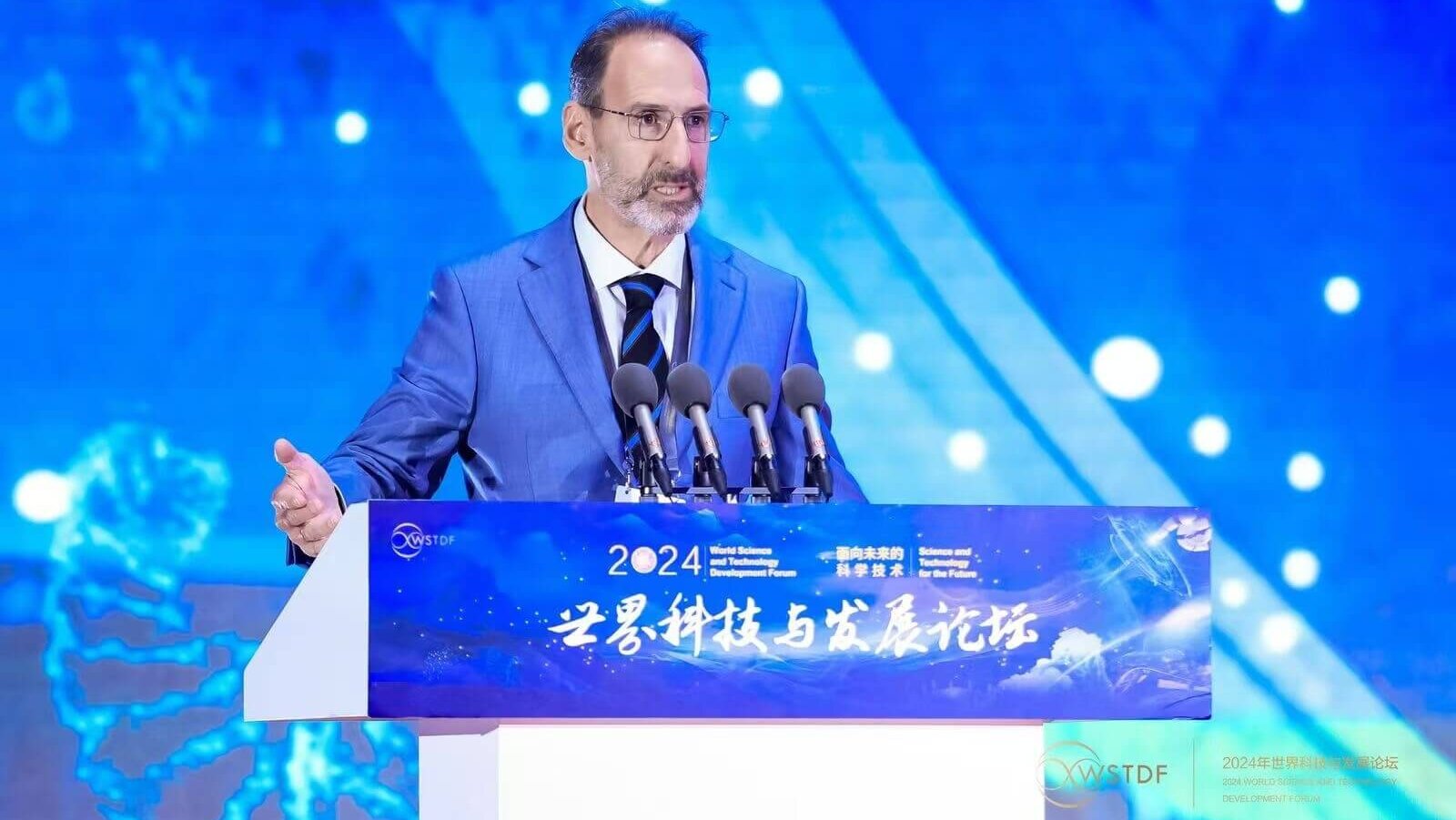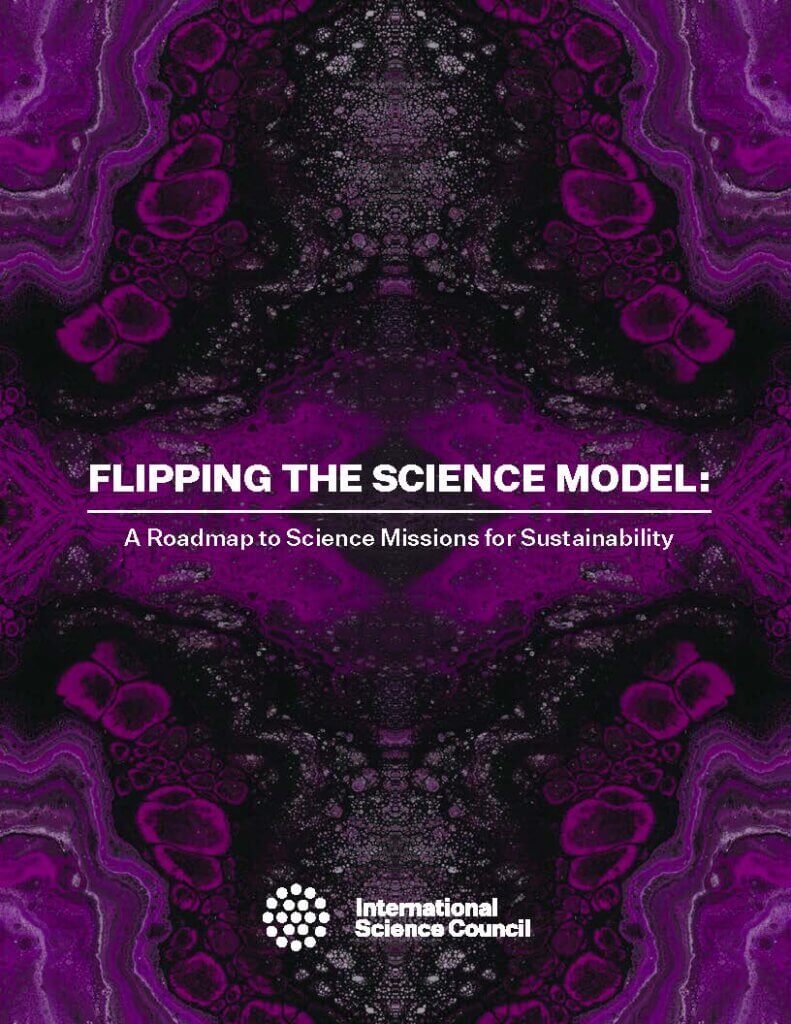
The 2024 edition of the World Science and Technology Development Forum has been launched in Beijing, China, with many ISC Members and representatives of ISC Affiliated Bodies present, along with ISC partners such as the World Federation of Engineering Organizations. Salvatore Aricò delivered an important message for the international scientific community at the opening of the event. Read his speech in full:
Your Excellency President WAN Gang,
Vice-President & Chief Executive Secretary HE Junke,
Vice-President SHI Yigong,
Distinguished Guests,
Ladies and Gentlemen,
It is my honour and pleasure to address this Word Science and Technology Development Forum 2024, convened by the China Association for Science and Technology, CAST. I address this distinguished audience in my capacity as CEO of the International Science Council, possibly the largest international non-governmental scientific organization federating more than 250 members in more than 140 countries, and comprised of national academies, both in the areas of natural as well as social sciences, internationally disciplinary unions, national research councils, and the associations of scientific organizations at the national and regional levels. The history of the International Science Council goes back in time to 1931 with the creation of the International Council of Scientific Unions and to 1952 with the creation of the International Social Science Council. We are proud to have both CAST as well as the Chinese Academy of Social Sciences as members of the Council. Once again, it is a unique opportunity for me to address today’s forum and to share a few words on where science is going and the collaboration between the Council and Chinese scientific instances.
Today the findings of scientific research, observations, the analyses of ensuing data, models, projections and forecast, foresight and anticipation – all these efforts driven by science and technology cannot remain in an ivory tower, in a scientific bubble if you wish. The world in which we live, characterized by multiple crises and increased polarization, is also a word reach in opportunities; a word in which science and technology, substantiated knowledge gathered in a systematic and iterative manner, and related applications, can also and should contribute to solutions.
This is not an easy endeavor, as it implies that the knowledge generated through science is actionable. This requires that scientists engage with stakeholders other than scientists and take into account the interests, aspirations, expectations, the values, and the knowledge systems of such stakeholders. Scientific questions formulated through co-design by scientists and other segments of society, including policymakers, have demonstrated to lead to knowledge contributing to solutions to inter alia climate change, inequalities, increased social cohesion, improved quality of life. The International Science Council has a systemic approach to science. The partnership with CAST has been most productive in that there is an alignment of perspectives on the role of science in society.
Science should be responsible from the point of view of science integrity, but also engaging with society. On the other hand, science needs a conducive environment to operate and thrive within: when engaging in scientific efforts, there is no way to anticipate where such efforts will lead.
History has demonstrated that discoveries apparently disconnected from real problems have generated novel knowledge which, with time, has entered and fed the innovation pipeline in ways to identify inter alia alternative energy sources, answers to pollution, enhanced water quality and sanitation, better social organization, improved access to health solutions, etcetera. Science should therefore be free and independent to thrive while also taking part in the solutions to society’s problems.
These efforts on ‘science in and for society’ also entail the need to form the next generation of scientists—scientists who are capable of understanding complex problems through inter- and trans-disciplinary methods; scientists who are able to provide advice to policymakers in a way that is meaningful, timely, and non-prescriptive.
In this regard, I am proud on behalf of the International Science Council to announce a recent partnership with the Chinese Association for Science and Technology in relation to early- and mid-career scientists. This partnership will allow to nurture through dedicated efforts the early- and mid-career scientists of the ISC membership, with a strong focus on scientists in the developing world.
The discussions between the International Science Council and the Chinese scientific community also point to a mutual understanding of the necessity, if I may use this expression, to ‘flip the science model’ and ensure that scientific questions are formulated against the background of the Sustainable Development Goals and the notion of sustainability – from the very beginning. This will allow science and technology to synergize with development efforts, which I understand is the vocation of this forum, precisely, to link science and technological considerations with sustainable development.
It is for me, as I anticipated at the beginning of my address, a real pleasure to see participants in this forum in action, and to see how actionable knowledge can assist in the various global efforts in which the Chinese scientific and technological community is engaged. As we speak, the scientific Committee of the Integrated Research on Disaster Risk Reduction initiative is meeting. This initiative is co-sponsored by the International Science Council and the United Nations Office for Disaster Risk Reduction and is supported by CAST, and represents an especially critical area for science in action.
I look forward to contributing and benefiting from the Forum’s outcomes, which will span from considerations related to emerging technology to international scientific collaborations, capacity development opportunities for scientists, and the contribution of science to peaceful dialogues among countries.
Thank you.
